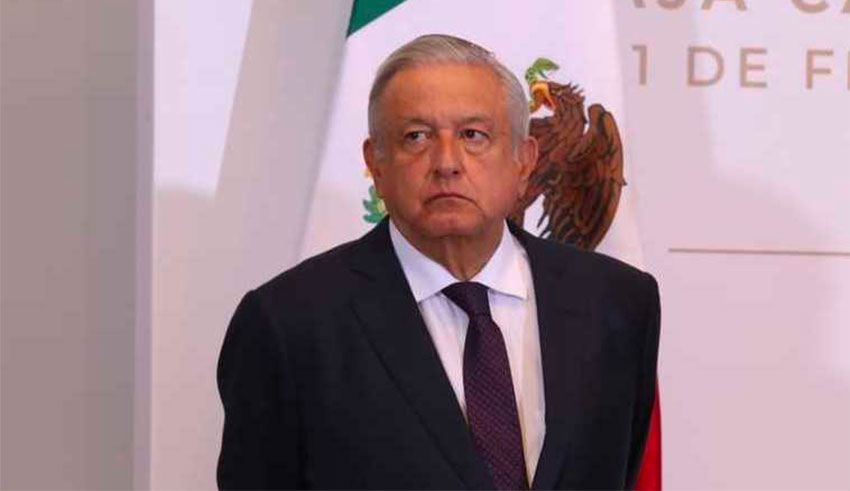Support is growing for a national women’s strike on March 9 to protest against high levels of gender-based violence.
Using the hashtags #ParoNacionaldeMujeres (National Women’s Strike), #UnDíaSinNosotras (A Day Without Us) and #UnDíaSinMujeres (A Day Without Women), women and feminist groups have taken to social media in recent days to encourage females across Mexico to skip work and school on the second Monday of March in order to send a clear message of condemnation of gender-based violence.
Flyers posted online also urge women to refrain from spending any money on March 9 to maximize the economic impact of the strike. Calculations completed by the newspaper El Economista found that the strike could cost the economy as much as 37 billion pesos (US $1.9 billion).
The nationwide mobilization of women comes after two particularly shocking femicides in Mexico City this month.
Ingrid Escamilla, a 25-year-old woman originally from Puebla, was stabbed to death, skinned and disemboweled by her domestic partner at their apartment in the north of Mexico City on February 8, while the body of 7-year-old Fátima Cecilia Aldrighett Antón was found a week later inside a plastic bag in the capital’s south.

President López Obrador, who this week blamed violence against women on the “neoliberal policies” of past governments and continued to argue that “moral regeneration” is the solution, is facing increasing criticism for his response to the crisis.
His wife, Beatriz Gutiérrez Müller, declared her support for the women’s strike on Thursday, posting a flyer promoting “A Day Without Women” to her social media accounts. However, she withdrew her support hours later, posting a different flyer emblazoned with the hashtags #NoAlParoNacional (No to the National Strike) and #UnDíaMásConNosotras (One More Day With Us).
Instead of striking, the flyer encourages both women and men to wear a white handkerchief on March 9 to demonstrate their repudiation of gender violence. “We support AMLO [López Obrador’s widely-use nickname] and we also want to eradicate violence,” it says.
The strike plan did, however, find support from members of the federal government as well as opposition political parties, the chief justice of the Supreme Court, state governors and universities, among others.
Interior Minister Olga Sánchez Cordero declared on Twitter that she would join the strike, while the head of the government’s Financial Intelligence Unit, Santiago Nieto, said that women who work at the department are free to participate. The president of the Senate, ruling party Senator Mónica Fernández, said that the upper house would support the initiative and that the women who work there are free to join.
The president of the lower house of Congress and National Action Party (PAN) Deputy Laura Rojas announced that the pay of women who work at the Chamber of Deputies will not be docked if they take part in the March 9 strike, while the national leaders of the main opposition parties – the PAN, the Institutional Revolutionary Party and the Democratic Revolution Party – all expressed their support for the national stoppage.
Chief Justice Arturo Zaldívar wrote on Twitter that all female employees of the federal judiciary are free to join the movement, while Jalisco Governor Enrique Alfaro said women who work for the state government will not face any negative consequence for participating.
Michoacán Governor Silvano Aureoles also said that his administration is in favor of the strike and that the absence from work of female government employees will be “justified and supported.”
Several universities across the country voiced their solidarity as did many celebrities such as actress Adriana Paz and singer Paty Cantú, who said that she hoped the strike will pressure the government to respond to the crisis of gender violence in Mexico, where an average of 10 women are murdered every day.
Speaking at his morning press conference on Friday, López Obrador said that the government respects and guarantees the right to protest, declaring that women are free to voice their opinions and that his administration is not “authoritarian” or “repressive” like those of the past.
However, he warned women that “conservatives” – a word he uses frequently to disparage opposition parties, past governments and critics of his administration in general – could attempt to appropriate the strike and the feminist protest movement more broadly for their own benefit.
“Just be very careful because the conservatives have become feminists,” he said, criticizing them for their newfound support of the right to protest after opposing demonstrations in recent years such as those carried out by teachers to reject the former government’s education reform.
“How many teachers were dismissed because they opposed the reform? What did the conservatives say? They said that it was very good because the teachers were troublemakers, because they didn’t go to work.”
Source: El Universal (sp), El Financiero (sp)
